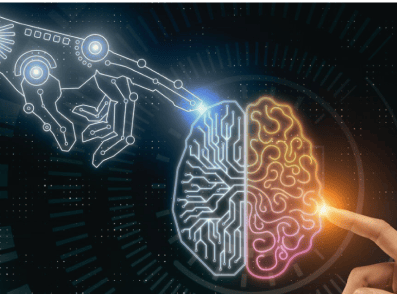
Artificial intelligence is now hitting us in earnest.
Over the past few months, as the use of AI-based assistants like Chat GPT has increased, we've been discussing the opportunities and challenges of increased use of AI. Discussions that, on the one hand, have been about the possibility of AI taking over and making us humans obsolete, and on the other hand, about all the amazing knowledge we'll have access to and the possibility of creative production of everything from party songs to exam papers.
Technology is turning many of the things we know and the way we have organized ourselves upside down. As we implement and use technology more and more, it is therefore highly relevant to discuss and debate.
Especially considering that we have only seen the beginning, because there is no doubt in my mind that we need to embrace technology even more and start using it.
I don't see how we as a society, public sector or private company can meet the demands and expectations of citizens and customers for products and services in the future without increased use of data and artificial intelligence. Just as AI will be necessary for employees to perform their jobs satisfactorily and efficiently in the future.
Not to mention how we will be able to address the shortage of labor and "warm" hands without greater use of technology.
The many possibilities of AI
We can't afford to wait if we want to ensure future welfare for all, cohesion in our society and competitive businesses. I'm sure many will agree with me on this, and they are probably already in full swing, while others may be unsure of what artificial intelligence could be used for. Still others may be unsure of how to get started and what they need to be aware of. Let me start with the first and come back to the last.
Overall, these technologies provide the ability to analyze large amounts of data and identify emerging patterns and correlations, make predictions and suggest preventative actions. For example, they can be used to develop personalized and relevant offers and services for customers. And it can also be done proactively - before the customer has asked for it. Exactly as we know it from Netflix and Spotify, for example. And they can be used to better understand customer preferences and thus enable targeted and efficient product development.
They can act as virtual assistants to handle routine tasks, and they can act as decision support to help managers make more informed decisions. In other cases, they can automate decision-making, such as in recruitment. Here they can screen resumes and applications, in inventory management they can predict demand, and in maintenance they can predict maintenance needs.
They can be used to identify anomalies in network activity that may indicate
Five tips
The application of artificial intelligence is by no means just about technology, but also about organizations, people and professions. The application of AI technology will have a major impact on how we organize our businesses and the professional content of many jobs.
The question is how to get started and what considerations to make. Here are my 5 pieces of advice: